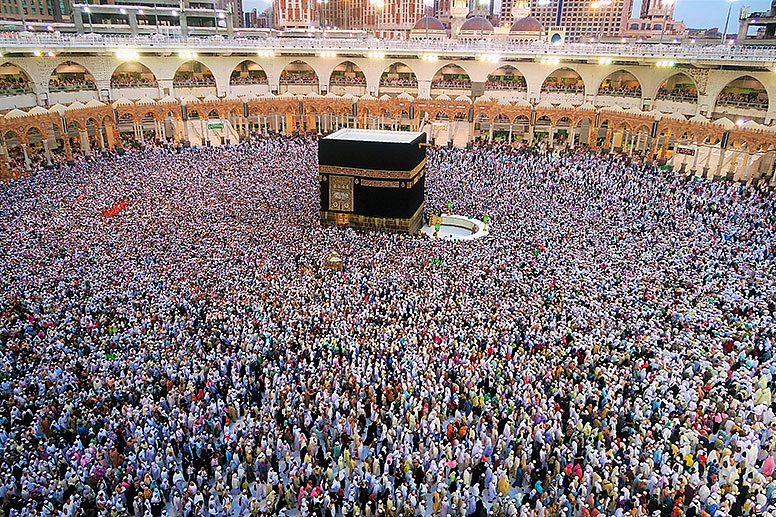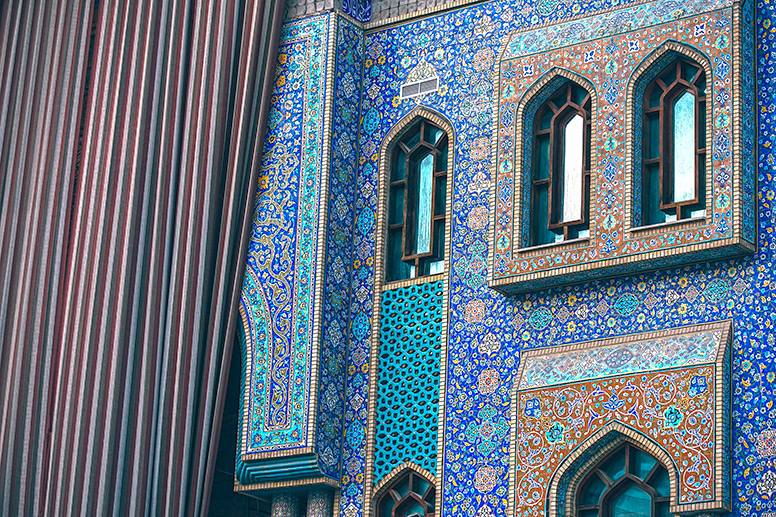
Islam: An Introduction
Islam is one of the world's largest and most widely practised religions, with over 1.8 billion followers worldwide. It is a monotheistic religion that was ultimately revealed in its final form in the Arabian Peninsula in the 7th century CE and is based on the Qur'an which is a book of revelations from Allah, and the teachings of the Prophet Muhammad (Peace be upon him).
The belief that Islam started from the Prophet Adam and Hawa (Eve) (Peace be upon them) is rooted in Islamic theology and is widely accepted by Muslims around the world. According to Islamic teachings, the Prophet Adam and Hawa (Peace be upon them) were the first human beings created by Allah, and they were also the first Muslims.
Islam as a religion, is based on submission to the will of Allah, and this submission was exemplified by the Prophet Adam and Hawa (Peace be upon them) when they obeyed Allah's commandments. The Qur'an, the holy book of Islam, tells the story of the Prophet Adam and Hawa (Peace be upon them) and their creation in several verses, including:
"O mankind! Be careful of your duty to your Lord Who created you from a single soul and from it created its mate and from them twain hath spread abroad a multitude of men and women. Be careful of your duty toward Allah in Whom ye claim (your rights) of one another, and toward the wombs (that bear you). Lo! Allah hath been a watcher over you." (4:1)
In this verse, Allah emphasizes that He created the Prophet Adam and Hawa (Peace be upon them) from a single soul and then created their offspring, which eventually spread into a multitude of men and women. Allah also commands humanity to be mindful of their duty to Him and to treat each other with respect and kindness, recognizing the familial ties that bind them.
Furthermore, Islamic teachings hold that the Prophet Adam and Hawa (Peace be upon them) were given a divine revelation that contained the basic principles of Islam, such as the belief in the oneness of Allah and the need to worship Him alone. Muslims believe that this revelation was passed down through the prophets, including Noah, Abraham, Moses, and Jesus (Peace be upon them all) until it was ultimately revealed in its final form to the Prophet Muhammad (Peace be upon him).
The Meaning and Practice of Submission in Islam

The word "Islam" means "submission" or "surrender" in Arabic. This refers to the fundamental belief in Islam that there is only one God, Allah and that all believers must submit themselves completely to His will.
This submission is demonstrated through daily prayers, acts of charity, fasting during the month of Ramadan, and making a pilgrimage to the holy city of Makkah at least once in a believer's lifetime, if possible.

The central text of Islam is the Qur'an, which Muslims believe is the literal word of God as revealed to Prophet Muhammad (Peace be upon him) over 23 years. The Qur'an is considered the final revelation of God and contains guidance on all aspects of life, including spiritual, social, and political matters.
Along with the Qur'an, Muslims also follow the Hadith, which are collections of sayings and actions of the prophet Prophet Muhammad (Peace be upon him).
The Five Pillars of Islam
The five pillars of Islam are the basic requirements that all Muslims must fulfil to live a righteous and fulfilling life. These are:
Shahada: The declaration of faith, which is the belief in the oneness of God and that Prophet Muhammad (Peace be upon him) is His messenger.
Salat: Daily prayer, which involves performing five prayers at specific times throughout the day. A place of worship for Muslims is called a mosque, or a masjid.
Zakat: Giving of alms, which is the act of donating a portion of one's wealth to those in need.
Sawm: Fasting during the month of Ramadan, which is a time for spiritual reflection and self-discipline.
Hajj: Pilgrimage to Makkah, which is a mandatory obligation for all able-bodied Muslims who can afford it.
Islamic Values: Compassion, Justice, and Pursuit of Knowledge
Islam emphasizes the importance of compassion, justice, and the pursuit of knowledge. Muslims believe in the equality of all people, regardless of their race, ethnicity, or gender.
They are encouraged to seek knowledge and to pursue education, as it is seen as a means of strengthening their faith and contributing to the betterment of society.
Islamic Contributions to Art, Architecture, Literature, and Science

Islam has a rich history and culture that has contributed greatly to the world in the fields of art, architecture, literature, and science. Muslims have made significant contributions to mathematics, astronomy, medicine, and philosophy, among other fields.
Some of the greatest works of literature in the world, such as the poetry of Rumi, were written by Muslim scholars and poets.
Misconceptions and Controversies Surrounding Islam
Despite its many contributions and positive aspects, Islam has also been the subject of much controversy, propaganda, and misunderstanding. In recent years, Islam has been misrepresented by the media and associated with acts of terrorism and extremism, leading to an increase in negative stereotypes and prejudices against Muslims.
It is important to remember that such injustice does not represent the true teachings of Islam and that true Muslims reject cruelty and oppression.
Islam as a Vibrant and Dynamic Religion
In conclusion, Islam is a rich and diverse religion that has had a profound impact on the world. Its teachings emphasize the importance of compassion, justice, and the pursuit of knowledge, and its followers strive to live a life that is pleasing to God.
Despite the challenges it has faced and continues to face, Islam remains a vibrant and dynamic religion that continues to inspire and guide millions of people around the world.









